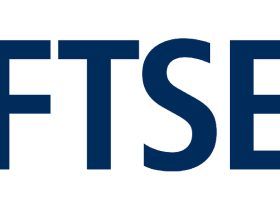CFD trading is becoming more and more popular, as traders can participate in different financial markets, use leverage, and trade with ease and accessibility. However, with the growing number of trading accounts available on the market, it may be somewhat daunting when it comes to choosing the right one for you so you can begin trading.
In this article, we aim to provide a starting point for you by listing out 5 key factors you may want to consider when choosing a CFD trading account. But before we begin, an important thing to understand is that there is no such thing as one best option that works for everyone. The best CFD trading account for you will be one that offers you what you need and can be easy for you to use. Therefore, doing sufficient research is crucial when you decide to create an account, and you should learn as much as you can about your personal preferences, risk tolerance, and trading needs.
Your trading instruments
The first thing you will need to consider is the kind of financial markets in which you will be participating. Not all brokers or CFD providers offer the same markets and instruments for trading, and you should make sure yours provide a wide variety of assets, including stocks, currencies, commodities, and indices. This allows you to diversify your portfolio down the line, and you can take advantage of different trading opportunities should you want to explore.
Your risk tolerance
You should then consider your risk tolerance. This is how much of your money you can afford to lose, and it may be represented as a percentage as part of all your funds. Accounts from different brokers offer different levels of leverage for certain markets when it comes to CFD trading. If you are planning on using leverage when trading, make sure you choose an account tier that can provide for you the leverage level you prefer.
Part of managing your risk when creating an account is to make sure you create one with a regulated and licensed financial organisation. Whether you want to work with an investment bank, a CFD provider, or a broker, you should make sure they are regulated by the Financial Conduct Authority (FCA) in the UK. This can provide added security for your funds and trades, as it ensures that your funds are with an organisation that adheres to strict standards and guidelines, as well as local laws.
Your trading style
Trading style is the way you approach the financial markets. It encompasses various factors, such as the timeframe you choose to operate within, the types of securities and instruments you want to trade, and the frequency of trading. There are several different trading styles, including day trading, swing trading, position trading, and scalping. Each style requires a different level of skill, experience, and risk tolerance.
Day trading involves the buying and selling of financial instruments within the same trading day, with the goal of profiting from short-term price movements. Day traders usually close out all their positions before the end of the day to avoid overnight risks. Another short-term trading style is scalping, which is a high-frequency trading style that involves opening and closing positions within seconds or minutes, with the goal of profiting from small price movements.
On the other hand, you have longer-term trading styles like swing trading, which involves holding positions for several days to capture medium-term price movements. Then, finally, you have position trading, which involves holding positions for an extended period, ranging from weeks to months or even years. Position traders aim to benefit from major price movements and ride out any short-term fluctuations.
The reason you need to know your trading style is because it impacts the kind of account you want to create. If you are a short-term trader, you may find yourself needing to execute trades rapidly over the course of a day. This way, you may want to investigate the possibility of opening a high-frequency trading account, where commissions and transaction fees are waived or offered on a sliding scale.
Whereas if you are a long-term trader who will hold open a position for weeks, months, or even years, you may want to select a trader who will be easy on you when it comes to overnight fees. This is because your positions will be held open overnight for many nights, and you do not want to incur a ton of extra charges for it, as it would cut steeply into your potential profits.
How much support you will need
Another thing that cannot be overlooked is how much support you will need, and how much support the account provider can offer. If you are a beginner CFD trader, you may find it useful to work with a broker or CFD provider that offers educational resources and customer support from experienced professionals. If you are an advanced trader who prefers to do things on your own, you should still consider the level of customer support you can receive from your broker, in case of technical errors and IT emergencies.
Trading accounts often come in tiers, when they are provided by reputable and large financial institutions. Generally, these institutions will offer a standard account for retail traders, a professional account for those with experience trading, and possibly a corporate account for those who work in the financial world as a day trader. Consider your expertise level and how much support you will need when you choose an account tier. You should also make sure you meet the minimum requirements for certain account tiers that may need proof of expertise.
Other trading preferences
Finally, you should consider your other trading preferences that lie beyond what we have just discussed above. This can be as simple as whether you like to trade at your desk at home or while on the go. If you know that you have a busy schedule and travel a lot, you should select a CFD account you can access on mobile, with a trading platform you can sign onto on your phone.
If you require certain trading tools and resources, you should also ensure that your account is compatible with them. This means making sure the trading platform connected to your account allows you to use third-party plugins if you need to, and that you have all the risk management tools and features you will need in place.
Lastly, think about the currencies you would be trading in, and the account deposit currency you will be able to choose. This is usually not a problem if you open an account with international brokers or financial institutions, as they usually offer multiple ways of funding your account, in different currencies. However, it never hurts to double-check before you fill out your application form.
To end things off
Choosing the right CFD account is crucial for your success as a trader. With so many options available, it is even more important to do your research and find one that is the best fit for you. During your evaluation, you should consider your risk tolerance, your trading style, the instruments you want to trade, the level of support you will need, and any other preferences you may have. You should also understand that that selecting the right CFD account for you is only one step in the right direction, and you cannot guarantee profits as all forms of trading carry risk.
















Leave a Reply